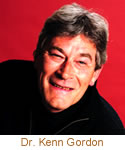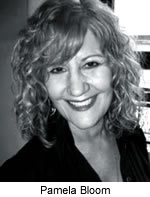Love Leads the Way
February 27 through March 4, 2011, United Centers for Spiritual Living will meet in San Diego, California, and make history as two organizations separated for fifty-four years will come together as one. Love truly has led the way to create a new, dynamic, global Centers for Spiritual Living. Dr. Kenn Gordon speaks of the birth of this historic integration.
What Integration Means to Me
Dr. Kenn Gordon, ICSL President
 In 2002, when Dr. David Walker was the President of Religious Science International, a proposal to unify our organization with our brothers and sisters in United Church of Religious Science was placed on the floor of our annual business meeting and a straw poll vote was taken to identify if the members of RSI supported such a direction. It passed with a super majority. In 2004, when Dr. Candice Becket was President, the ministers of RSI met in the Chapel at Asilomar for our annual Ministers’ Forum. At that meeting, when all of the usual reporting was complete, a question came from the floor asking about the status of our unification with UCRS. At that particular time, unification (as it was then called) was stalled. When this was reported, someone in that meeting proposed we treat for unification and the process to do so. In 2007, as President of RSI, I addressed the UCORS mini-convo in Kansas City on the topic of unification. When my presentation was complete, I asked Dr. Christian Sorenson to conduct the ministers of United Centers for Spiritual Living in a treatment for unification and the process to do so. Today, we stand in the midst of the manifestation of those treatments. In 2002, when Dr. David Walker was the President of Religious Science International, a proposal to unify our organization with our brothers and sisters in United Church of Religious Science was placed on the floor of our annual business meeting and a straw poll vote was taken to identify if the members of RSI supported such a direction. It passed with a super majority. In 2004, when Dr. Candice Becket was President, the ministers of RSI met in the Chapel at Asilomar for our annual Ministers’ Forum. At that meeting, when all of the usual reporting was complete, a question came from the floor asking about the status of our unification with UCRS. At that particular time, unification (as it was then called) was stalled. When this was reported, someone in that meeting proposed we treat for unification and the process to do so. In 2007, as President of RSI, I addressed the UCORS mini-convo in Kansas City on the topic of unification. When my presentation was complete, I asked Dr. Christian Sorenson to conduct the ministers of United Centers for Spiritual Living in a treatment for unification and the process to do so. Today, we stand in the midst of the manifestation of those treatments.
Click here to read more about this manifestation and historic time. |
A Writer’s Discovery
Pamela Bloom
 When Science of Mind asked me to write an article last year, I wasn’t at all familiar with the magazine, even though a favorite prayer for mine for many years had been the one of Ernest Holmes that starts “There is One Power….” For that first article, which appeared in the August 2010 issue (titled "The Web of Compassion"), I mainly focused on stories from my new book, The Power of Compassion, trying to avoid any reference to Science of Mind because, frankly, I didn’t know any—or so I thought. Although I was eager to contribute, I wasn't sure whether the Buddhist-influenced themes of my book would be a match for the magazine, but the editor assured me the editorial thrust was open and ecumenical. When I was asked to write a second article, I felt it was only appropriate to discover more about the philosophy of Ernest Holmes. When Science of Mind asked me to write an article last year, I wasn’t at all familiar with the magazine, even though a favorite prayer for mine for many years had been the one of Ernest Holmes that starts “There is One Power….” For that first article, which appeared in the August 2010 issue (titled "The Web of Compassion"), I mainly focused on stories from my new book, The Power of Compassion, trying to avoid any reference to Science of Mind because, frankly, I didn’t know any—or so I thought. Although I was eager to contribute, I wasn't sure whether the Buddhist-influenced themes of my book would be a match for the magazine, but the editor assured me the editorial thrust was open and ecumenical. When I was asked to write a second article, I felt it was only appropriate to discover more about the philosophy of Ernest Holmes.
At that time, by serendipitous coincidence, a friend in New York stumbled across a copy of Holmes’s classic Science of Mind at a bookstore and gave it to me for my birthday. Immediately, as I began reading, a thrill went through me; somehow, after all these years on a multi-faith spiritual path, I found Holmes’s words entering directly into my heart. Page after page, I felt I was in the presence of spiritual genius, delighted not only by the profundity of his words, but also his ability to express those thoughts so simply. In fact, so shocked was I, that I couldn’t believe I hadn't seriously studied his work before. Around this time, I was guided one day to browse through my bookshelf (a writer’s bookshelf, full of tons of books), and lo and behold, right there in full view was another work of Ernest Holmes that must have been about thirty years old! I figured I must have bought it at the time when I was reading (and loving) Joel Goldsmith, but apparently, the lights had not gone on then. Clearly, it has taken me a lifetime to appreciate what I see now as truly a brilliant distillation of the entire New Thought movement—even before it ever took root in the lives of so many modern mystics.
Buoyed by Holmes’s inspiration, I worked on my present article, “The Evolution of Love” (February 2011), over several months. I wrote a little bit at a time, not knowing where it would go or how it would end. And yet I can truly say, every step of the way, I felt the presence of Ernest opening my heart, guiding my thinking, challenging me to go deeper. In fact, I felt so close to Holmes that I actually began to refer to him in my head as “Ernest.” While I can’t say my article completely expresses his thoughts, I have come to believe—after reading several of his biographies—that Ernest would have welcomed any genuine, creative evolution of mystical thought for he was never one to stay mired in an inflexible, static philosophy. Yet what truly makes this pioneer stand out, I believe, so far above the crowd, is that he truly lived the Science of Mind, and that is why I love and admire him so much. While Ernest Holmes may not be with us today in body, he remains a living presence that continues to inspire so many with eternal, ever-evolving truths. It’s because of this that I feel so privileged to be published in the magazine that bears his name and continues his legacy of spiritual exploration. Truly, no one has ever described our human condition more succinctly or more profoundly than Ernest Holmes did when he wrote these simple words that inspired my own article so many years later: Each one of us is an outlet to God and an inlet to God.
With a line like that, who needs anything more?
Pamela Bloom is an interfaith minister, spiritual healer, and award-winning writer. Her most recent books are The Power of Compassion: Stories that Open the Heart, Heal the Soul, and Change the World (Hampton Roads, 2010) and Heaven Speaks: Intimate Interviews with Illuminated Souls, co-authored with Carla Flack, Soul Connections, 2010). For more information, visit her website: www.BooksbyPamelaBloom.com.
The seahorse video referred to in “The Evolution of Love” feature can be found on the bottom of her website's home page: www.youtube.com/thepowerofcompassion. |

